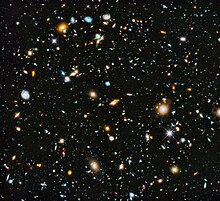Poetry/Practice/Universal Language of Absolutes/Nature
“Nature has endowed us with innate knowledge which evolves as we progress.‘How’ we ‘know’ is the process operating effectively in conjunction with the real content Nature has provided. The question of ’how’ will always arise when the ‘apparent comparative framework’ is in ascendance. The question naturally dissolves when we experience ’what is’. It would be an irrelevance for anyone to ask you ‘how do you know how to breathe’?, as it is for anyone to ask you ’how do you know’?

Present day biological scientific principles will provide you with the information on how we breathe, but there is no separative distinction between breathing, and knowing ’how’ to breathe. Human beings knew how to breathe long before there were physical sciences to detail the function of breathing! Likewise we can know without specific instructions on how to do it.
The only form of true knowledge we can have is through direct relationship with reality, and the recognition that there are specific principles involved. Trying to express knowledge of a vivid experience to someone is generally not transferable - unless the other has experienced it also, but observing principles in action enables insight experience. Consistent knowledge is prevalent, but the consistent principles underlying that knowledge seem to have little recognition , nor is it fully understood that basic principles are fundamental to any reasoning process.
It may be a very radical paradox to say that the ordinary is indeed very extraordinary. Amassed information is not knowledge that is ‘out’ there. That information only becomes knowledge when the process of understanding that information correctly takes place - then the principle becomes established - and the experience of ‘knowing’ the principle becomes a reality.
Where there is electricity almost everyone knows that you can press a light switch to give you light, but very few would be able to expound the theory and scientific principle of electricity as Edison understood it.
Our social structure of ethics - morality- agreement is based on our ’knowing’ to some degree the same things. We cannot ‘know’ in isolation, otherwise there would be no social cohesion. Innate knowledge is our only source of understanding the world we are born into.To operate from the premise that because we have what we call ‘consciousness’ and that there is no other frame of reference available that we can explore, or that can explain our everyday operations, is denying the opportunity to explore it, use it, and consequently ’know’ through everyday experience that life is more than a monistic state of being.
Monism would have us anchored in that Platonic cave where the singularity is the shadows that move, when in reality we are the substance of everything that is outside the cave.Our self-imposed monism cultivated by historical dichotomous imperatives creates its own world in which it negates the constant affirmation of its own reality.

Entrapped by that ‘centric consciousness’ its power of control becomes destructive to protect its own existence. In dealing with one’s own ‘consciousness’ there is little possibility of a neutral position being acquired to estimate the reality that naturally envelops us.
Mythical dichotomies when expounded long enough take on a powerful false reality in our so-called human ’consciousness’, and attempt to exclude knowledge essential for continuing development - which is denial.
Living within a comparative framework requires the energy of constant denial of Reality itself, with the consequential attempt to give credence and substance to that which does not exist in and of itself.
The most severe contradiction being the negation of ‘what is’ reflects in attempted negation of one’s own existence, which in turn attempts to deny the essence of reality in others.
In the end, it comes down to simple common-sense, utilising that which of necessity should be recognized, the starting point from which reason can begin.
In my immediate world, experience tells me that everything in it ’is’ - ergo in all my experiences, ‘everything is’.

Everything is: Matter - Energy - Space - Time. Or else there is Nothing!
Attempting nothingness is a continual denial that life exists!! Which of course is philosophical nonsense.To choose to explore what ‘nothing’ is, is the constant exploration of shadows in a cave.The only thing we can measure is Reality itself, for there is nothing else.
Within the above context everything that is in Time, is forever, therefore Absolute. We do not have the ability to deny anything.However firm the attempted denial or its manifestation in strength as a mythical reality, or a comparative framework, the fundamental basis of any truth is our only means of extension.
There is something, or there is nothing.